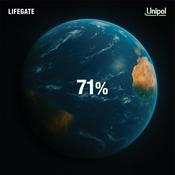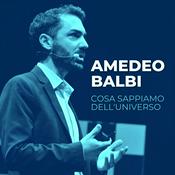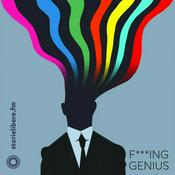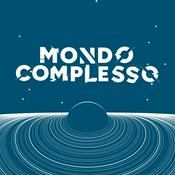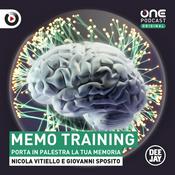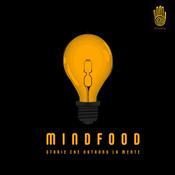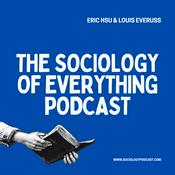Sean Carroll's Mindscape: Science, Society, Philosophy, Culture, Arts, and Ideas
Sean Carroll
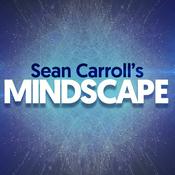
Ultimo episodio
414 episodi
- It's possible to look at the course of history over the past few centuries and discern a movement toward increasing democracy, freedom, and individual rights -- "liberalism," in the political-philosophy sense of the term. But such movement isn't inevitable or irreversible, and in very recent times there have been both intellectual arguments explicitly pushing back against the liberal consensus, and political movements that are more openly nativist and authoritarian. I talk with Adam Gurri, the editor-in-chief of Liberal Currents, a web site that "publishes writers of diverse perspectives who share an unflinching commitment to freedom, pluralism, and democracy, in opposition to authoritarianism at home and around the world."
Go to https://surfshark.com/mindscape or use code MINDSCAPE at checkout to get 4 extra months of Surfshark VPN!
Blog post with transcript: https://www.preposterousuniverse.com/podcast/2026/02/16/344-adam-gurri-on-liberal-democracy-and-how-to-fight-for-it/
Support Mindscape on Patreon.
Adam Gurri received an M.A. in Economics from George Mason University. He is the co-founder and Editor-in-Chief of Liberal Currents.
Web site
Liberal Currents
Bluesky - For all that human beings spend a lot of their time thinking, it's far from obvious what that process actually entails. Part of it amounts to classical logical reasoning. But an even bigger part involves reasoning with probability and uncertainty. And some of it is governed by unavoidable limitations on time and accuracy. Psychologist and computer scientist Tom Griffiths suggests that we have thought about it enough to feel that we have come to understand some general principles, which he explains in his new book The Laws of Thought: The Quest for a Mathematical Theory of Mind.
Take your personal data back with Incogni! Use code MINDSCAPE at this link and get 60% off an annual plan: https://incogni.com/mindscape #sponsore
Blog post with transcript: https://www.preposterousuniverse.com/podcast/2026/02/09/343-tom-griffiths-on-the-laws-of-thought/
Support Mindscape on Patreon.
Tom Griffiths received his Ph.D. in psychology from Stanford University. He is currently Professor of Psychology and Computer Science at Princeton University, Director of the Computational Cognitive Science Lab, and Director of the Princeton Laboratory for Artificial Intelligence. He is the co-author of Algorithms to Live By: The Computer Science of Human Decisions, as well as the upcoming The Rational Use of Cognitive Resources.
Web site
Princeton web page
Google Scholar publications
Wikipedia - Welcome to the February 2026 Ask Me Anything episode of Mindscape! These monthly excursions are funded by Patreon supporters (who are also the ones asking the questions). We take questions asked by Patreons, whittle them down to a more manageable number -- based primarily on whether I have anything interesting to say about them, not whether the questions themselves are good -- and sometimes group them together if they are about a similar topic. Enjoy!
Blog post with AMA questions and transcript: https://www.preposterousuniverse.com/podcast/2026/02/02/ama-february-2026/
Note that Mindscape now has a new hosting provider, Libsyn. (Actually a return home, as that was my first host when Mindscape was launched.) Things seem to be going smoothly, but let us know if there are any technical glitches.
Support Mindscape on Patreon. - Evolution with natural selection involves an intricate mix of the random and the driven. Mutations are essentially random, while selection pressures work to prefer certain outcomes over others. There is tremendous divergence of species over time, but also repeated convergence to forms and mechanisms that are unmistakably useful. We see this clearly in eyes and fins, but the basic pattern also holds for brains and forms of social organization. I talk with philosopher Rachell Powell about what these ideas mean for humans, other terrestrial species, and also for forms of life we have not yet encountered.
Blog post with transcript: https://www.preposterousuniverse.com/podcast/2026/01/26/342-rachell-powell-on-evolutionary-convergence-morality-and-mind/
Support Mindscape on Patreon.
Rachell Powell received her Ph.D. in philosophy from Duke University. She is currently a Professor of Philosophy at Boston University. She has held fellowships at the National Humanities Center, the American Council of Learned Societies, the Konrad Lorenz Institute for Evolution and Cognition Research, the National Evolutionary Synthesis Center, the Berlin School of Mind and Brain at Humboldt University, and the Center for Genetic Engineering and Society at North Carolina State University.
Boston University web page
PhilPapers publications - "Things fall apart; the centre cannot hold," wrote W.B. Yeats. I don't know about the centre, but the tendency of things to fall apart is pretty universal, ultimately due to the Second Law of Thermodynamics. Anyone living in a society or involved with technology must therefore be interested in the concept of maintenance -- keeping systems working. In his book Maintenance: Of Everything, Part One, Stewart Brand looks at the challenges and rewards of this concept.
Blog post with transcript: https://www.preposterousuniverse.com/podcast/2026/01/19/341-stewart-brand-on-maintenance-as-an-organizing-principle/
Support Mindscape on Patreon.
Stewart Brand received an undergraduate degree in biology from Stanford University. He was the founder, editor, and publisher of the Whole Earth Catalog, which won a National Book Award. He founded the journal CoEvolution Quarterly and the WELL electronic community, and was a co-founder of the Long Now Foundation. He has been called "the 20th century's top influencer."
Web site
Amazon author page
Wikipedia
Altri podcast di Scienze
Podcast di tendenza in Scienze
Su Sean Carroll's Mindscape: Science, Society, Philosophy, Culture, Arts, and Ideas
Ever wanted to know how music affects your brain, what quantum mechanics really is, or how black holes work? Do you wonder why you get emotional each time you see a certain movie, or how on earth video games are designed? Then you've come to the right place. Each week, Sean Carroll will host conversations with some of the most interesting thinkers in the world. From neuroscientists and engineers to authors and television producers, Sean and his guests talk about the biggest ideas in science, philosophy, culture and much more.
Sito web del podcastAscolta Sean Carroll's Mindscape: Science, Society, Philosophy, Culture, Arts, and Ideas, Serendipity e molti altri podcast da tutto il mondo con l’applicazione di radio.it

Scarica l'app gratuita radio.it
- Salva le radio e i podcast favoriti
- Streaming via Wi-Fi o Bluetooth
- Supporta Carplay & Android Auto
- Molte altre funzioni dell'app
Scarica l'app gratuita radio.it
- Salva le radio e i podcast favoriti
- Streaming via Wi-Fi o Bluetooth
- Supporta Carplay & Android Auto
- Molte altre funzioni dell'app


Sean Carroll's Mindscape: Science, Society, Philosophy, Culture, Arts, and Ideas
Scansione il codice,
scarica l'app,
ascolta.
scarica l'app,
ascolta.







